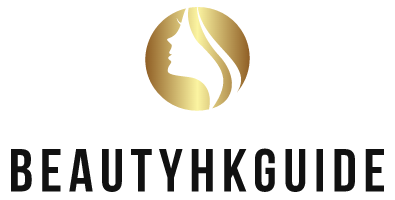How does call option works?
A call option is a contract that gives the owner the option, but not the requirement, to buy a specific underlying stock at a predetermined price (known as the “strike price”) within a certain time period (or “expiration”). For this option to buy the stock, the call buyer pays a “premium” per share to the call seller.
Can you sell a call option early?
The buyer can also sell the options contract to another option buyer at any time before the expiration date, at the prevailing market price of the contract. If the price of the underlying security remains relatively unchanged or declines, then the value of the option will decline as it nears its expiration date.
Which one is best CE or PE?
PE-Put Option and CE- Call Option are terms in option trading. Theoretically , CE stands for 'Right to Buy' and PE stands for 'Right to Sell'. When market goes up, you should buy CE. When market goes down, you should buy PE.
Can you owe money on call options?
For example, if you buy a call option or a put option with cash, you're using no debt at all. You're also under no risk of losing more than the amount you invested.
Can you lose infinite money on calls?
In the case of call options, there is no limit to how high a stock can climb, meaning that potential losses are limitless.
When should I sell my calls?
When Should You Use Call Options? Call options should be written when you believe that the price of the underlying asset will decrease. Call options should be bought, or held, when you anticipate a rally in the underlying asset price – and they should be sold when if you no longer expect the rally.
Are options riskier than stocks?
Options can be less risky for investors because they require less financial commitment than equities, and they can also be less risky due to their relative imperviousness to the potentially catastrophic effects of gap openings. Options are the most dependable form of hedge, and this also makes them safer than stocks.
How does call warrant work?
A call warrant is a financial instrument that gives the holder the right to buy the underlying stock shares at a specific price on or before a specified date. Call warrants are often included in a new equity or debt offering from a company.
How do you price a warrant?
Subtract the exercise price from the market price to find the intrinsic value of the warrant. Suppose the market price is $50 per share and the exercise price is $40. This gives you an intrinsic value of $10 per share. Divide the intrinsic value by the conversion ratio to find the value of one warrant.
Why would you sell a call option?
The reason for selling a call option is also the same: To profit by keeping the premium you charge for the contract. Quick tip: It's important to remember that when you sell a call option, your potential upside (profit) can be limited to the premium you receive and your downside can be unlimited.
Related Hot Topic
When may a warrant be sold?
The stock warrant is valid till the time it expires. The warrant is no longer valid after the expiration date and cannot be used by the holder. An American-style stock warrant allows the holder to sell or buy shares at any time prior to the warrant's expiration.
Can warrants cause you to lose money?
In that case, you would exercise a warrant by purchasing shares of stock below market value and pocketing the difference as a profit. You forfeit the cash you spent on the warrant if that doesn't happen.
If so, when do they end?
No, most arrest warrants never expire. Whenever a law enforcement official comes into contact with the subject of the warrant after they have been issued, they can be executed. This may occur immediately upon the issuance of the warrant or months or even years later. Usually, it takes place during a traffic stop.
Are warrants checked by Border Patrol?
Agents typically depend on a basic arrest warrant search at border control rather than performing extensive background investigations. Consultations with the National Crime Information Center, or NCIC, are frequently part of this process. The parallel system is also accessible to Border Patrol for Canadian citizens.
27

- Mechanical Engineering
- detergent
- China mosquito insecticide
- choose a good motor
- electric mop
- solid electrolytes
- insect killer supplier
- manufacturing industry
- unique artistic quality
- busy schedules
- Lung health
- SIBO
- Lithium Battery Positive and Negative Pieces
- vehicles battery
- pesticide is pesticide
- curtain
- Aesthetic Maestro
- Mac tool
- market share
- future career
- Wafer Test
- graduates
- wafer probe
- Double-layer PDF
- engraving photographs
- saas application
- Conditional visa exemption
- SAP Outsourcing
- insecticidal effect

.png?x-oss-process=image/resize,p_100/format,webp)
.jpg?x-oss-process=image/resize,p_100/format,webp)











